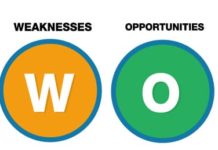Improving Focus for Effective Learning
Developing the ability to focus effectively is crucial for academic success. Children who can pay keen attention and actively engage in learning, participating attentively in lessons and practicing diligently, tend to retain knowledge more deeply. This not only enhances their academic progress but also sets them up for greater achievements throughout their educational journeys.
Moreover, focus helps children eliminate distractions and direct their undivided attention to the task at hand. This requires perseverance and the ability to manage time wisely. Parents can support their children in developing this skill by creating a distraction-free study space, implementing a clear study schedule, and facilitating a structured approach to learning.
Furthermore, connecting learning to real-world applications serves as an effective method to improve children’s focus. When children are presented with vivid examples and practical applications of the knowledge they are learning, their understanding and interest are amplified.
For instance, integrating math problems into practical shopping scenarios helps children appreciate the value of their mathematical studies and its relevance to everyday life. Parents can also encourage their children to develop logical thinking and reasoning abilities by asking probing questions and engaging in deeper discussions about the subjects they are studying.
A strong ability to focus is not only a driver for academic excellence but also a vital life skill. It fosters self-confidence, resilience, and an insightful approach to time management.

Cultivating Good Habits for Learning
Positive learning habits lay the foundation for children to become self-directed learners and lifelong seekers of knowledge. Children with these routines in place are more likely to explore and advance their learning without constant prompting from parents. This becomes increasingly important as children enter secondary and tertiary education, where independence, initiative, and dedication are fostered organically.
Practicing regular review before and after lessons is among the most effective habits, as it reinforces knowledge and prepares children thoroughly for new lessons. Spending time reviewing lessons helps children establish stronger neural connections and enhance long-term memory retention. Through reviewing, children also have an opportunity to identify areas of strength and weakness for further improvement and development.
Avoiding procrastination is another essential learning habit, fostering time-management skills and ensuring that tasks are completed on schedule. This habit also enhances organizational abilities and time-management skills – both of which are essential for optimal performance in both academic and personal life.
Approaching homework assignments with diligence and care is an important learning habit, as it enables children to apply the knowledge they have learnt in a practical and effective manner. When children prioritize neatness and attention to detail in their homework, they build a stronger knowledge base and develop deeper understanding.
By cultivating these positive learning habits, children develop independence and self-direction in their studies. They recognize learning as a personal responsibility and set their own goals for success, moving beyond a reliance on constant parental supervision or encouragement and embracing intrinsic motivation and a genuine thirst for learning.

Fostering a Love of Learning
Inquisitive children typically achieve greater academic success, as their young minds are highly adaptable and receptive to new knowledge, absorbing information at an astonishing rate. Such young learners are often animated by an innate curiosity, asking insightful questions and pursuing answers with a keen interest. Regardless of age, learning should always involve an active approach to acquiring knowledge.
Children who engage enthusiastically with the world around them, embracing exploration and discovery, demonstrate a deeper understanding of academic subjects and a broader perspective on the world.
A thirst for knowledge drives the brain to be active, leading to the development of a robust network of knowledge connections. Learning extends beyond mere memorization, fostering creative and critical thinking skills, providing the foundation for well-rounded development.

Encouraging Confidence in Children
Children who possess self-confidence and emotional stability are more likely to flourish and achieve their full potential.
Instead of feeling disheartened and giving up, they learn to persevere and persist, setting goals and working diligently to achieve them. A resilient spirit helps them recognize setbacks as a natural part of the learning journey, rather than an end point.
When children believe in themselves, they are receptive to taking on new challenges, exploring and developing their abilities. They are more likely to express their thoughts, share their ideas, and forge healthy relationships with others.




































